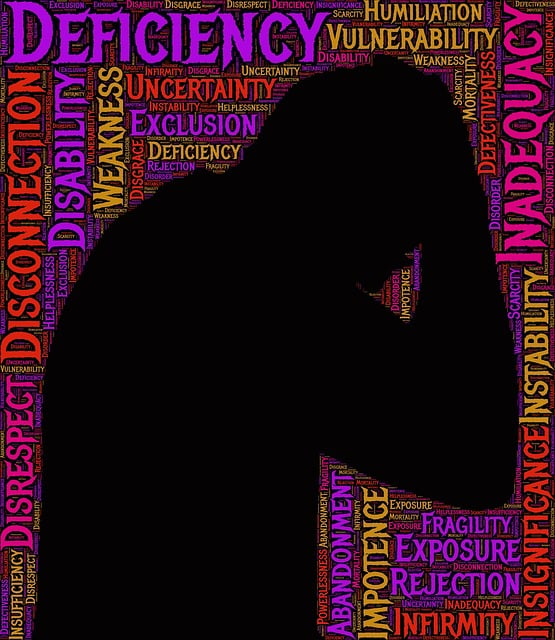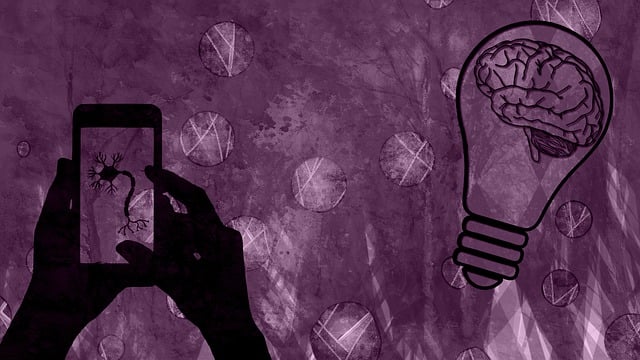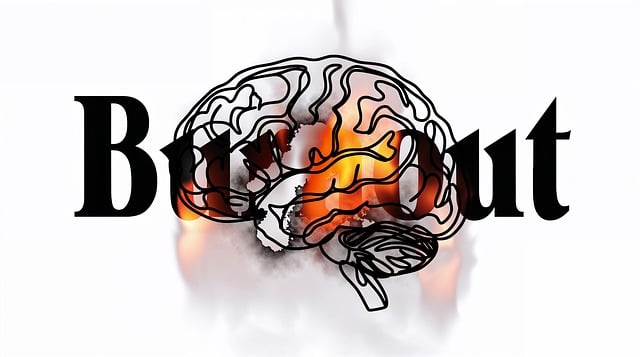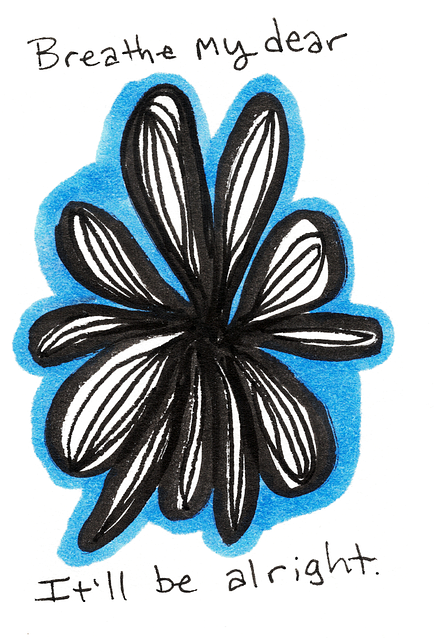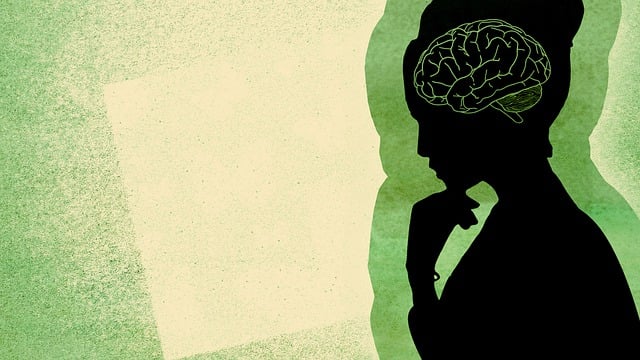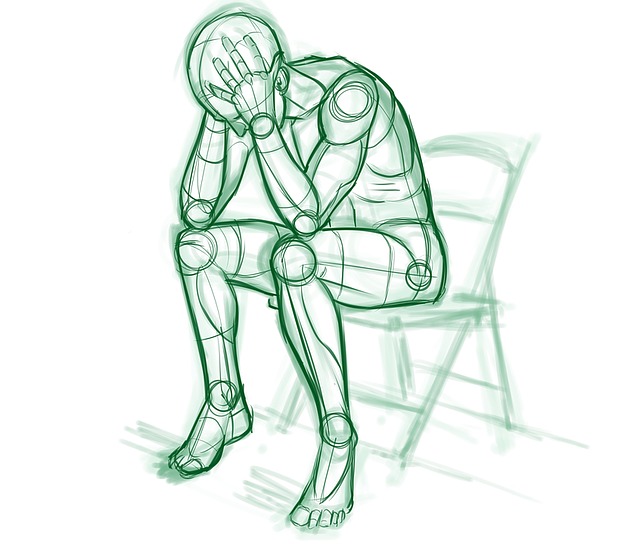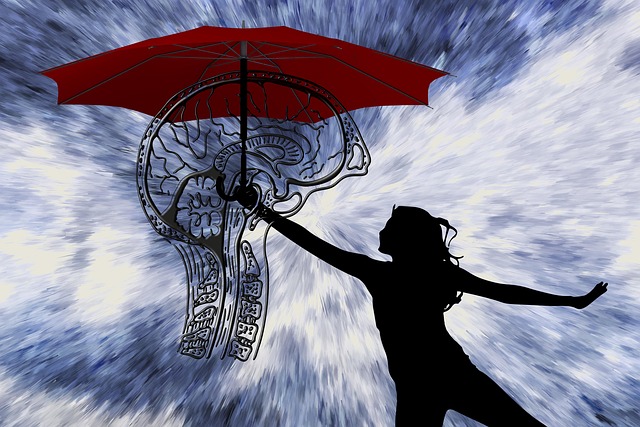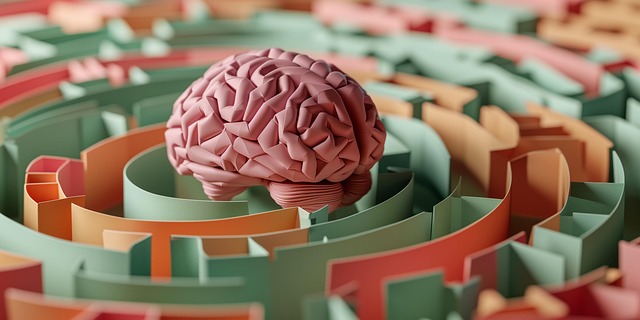Understanding mental health diagnoses in elders is vital for effective treatment, addressing unique challenges like depression, anxiety, and cognitive impairments. Early recognition prevents significant impacts on daily life. Elderly symptoms may differ from younger individuals, complicating diagnosis, especially sexual dysfunction caused by physical changes, medications, or age-related cognitive shifts. Therapy tailored to seniors' needs, incorporating compassion cultivation and self-care routines, benefits both caregivers and elders, promoting better mental health outcomes and preventing caregiver burnout. Cognitive Behavioral Therapy (CBT) is effective for conditions like depression and anxiety disorders, and specialized therapists offer guidance on sexual dysfunction. Group settings, counseling centers, and community programs provide comprehensive care. Creating a holistic Comprehensive Care Plan enhances quality of life by integrating tailored therapy and personalized interventions, empowering individuals to manage their mental health proactively. Encouraging self-care, social connections, and utilizing community resources is crucial for effective mental health care in older adults, including sensitive issues like sexual dysfunction.
Mental illness diagnosis and treatment navigation assistance is crucial for elders, who often face unique challenges in understanding their mental health conditions. This comprehensive guide delves into key areas such as recognizing sexual dysfunction—a common yet frequently overlooked issue among the elderly—and navigating available therapies and support services. By exploring strategies for creating holistic care plans and empowering elders with self-care techniques, this article aims to enhance quality of life through effective treatment and community resources.
- Understanding Mental Health Diagnoses for Elders
- The Impact of Sexual Dysfunction on Elderly Individuals
- Navigating Treatment Options: Therapies and Support Services
- Creating a Comprehensive Care Plan for Improved Quality of Life
- Empowering Elders: Self-Care Strategies and Community Resources
Understanding Mental Health Diagnoses for Elders

Understanding mental health diagnoses is a crucial step in navigating treatment for elders. The elderly population often faces unique challenges when it comes to their mental well-being, with conditions like depression, anxiety, and cognitive impairments being prevalent. Recognizing these issues early on is essential as they can significantly impact daily life and overall quality of life. Many older adults may experience symptoms that are distinct from younger individuals, making accurate diagnosis a complex task. For instance, what appears as persistent sadness in a younger person might manifest as irritability or social withdrawal in an elder.
When it comes to specific concerns, therapy for elders with sexual dysfunction is another critical aspect of mental health care. This issue can arise due to various factors, including physical health changes, medications, and age-related cognitive shifts. Incorporating compassion cultivation practices and self-care routine development into treatment plans can be beneficial for preventing burnout among caregivers and promoting better mental health outcomes for elders.
The Impact of Sexual Dysfunction on Elderly Individuals

Sexual dysfunction is a significant concern among elderly individuals, often overlooked but with profound implications for their overall well-being. As people age, various physical and mental health conditions can arise, leading to changes in libido, sexual interest, and ability. This can result in distressing symptoms such as lack of desire, difficulty achieving arousal, or pain during intercourse. The impact extends beyond the bedroom; it influences self-esteem, relationships, and overall quality of life.
Elderly people facing sexual dysfunction may struggle with increased stress and anxiety, which further complicates their mental health status. Effective treatment requires a holistic approach, incorporating therapy tailored to their unique needs. Professional help can facilitate coping skills development, enabling seniors to manage their symptoms. Additionally, therapy sessions focused on stress management and confidence boosting can play a pivotal role in restoring sexual health and enhancing the overall resilience of elderly individuals.
Navigating Treatment Options: Therapies and Support Services

Navigating treatment options is a crucial step in managing mental illness effectively. Among various therapies, Cognitive Behavioral Therapy (CBT) has proven effective for a wide range of conditions, including depression and anxiety disorders. For elders experiencing sexual dysfunction as part of their mental health issues, specialized therapists can provide guidance tailored to their needs, integrating these discussions sensitively within the therapeutic process.
Beyond individual therapy, group settings offer unique benefits. Support groups facilitate connections among individuals facing similar challenges, fostering a sense of belonging and understanding. Additionally, healthcare providers can recommend specific services like counseling centers or community mental health programs that offer comprehensive care, including emotional intelligence-based interventions and burnout prevention strategies crucial for maintaining the well-being of both patients and caregivers. Positive thinking techniques are also integrated into many therapeutic approaches to empower individuals in managing their mental health proactively.
Creating a Comprehensive Care Plan for Improved Quality of Life

Creating a Comprehensive Care Plan is essential for improving the quality of life for individuals navigating mental health challenges, especially elders experiencing issues like sexual dysfunction. This holistic approach integrates various components, including therapy tailored to their specific needs, such as addressing sexual dysfunction in the elderly through specialized psychotherapy or counseling sessions. By incorporating evidence-based practices and personalized interventions, healthcare providers can effectively manage symptoms associated with depression prevention and overall well-being.
A robust care plan may involve designing mental health education programs that empower individuals to understand their condition better. These programs can teach valuable conflict resolution techniques, helping them navigate interpersonal challenges related to their mental health journey. Such a multi-faceted strategy ensures that elders receive comprehensive support, fostering improved mental health outcomes and enhancing their ability to manage daily life effectively.
Empowering Elders: Self-Care Strategies and Community Resources

Mental health issues among older adults often require a tailored approach, and empowering elders to take charge of their well-being is a crucial step in diagnosis and treatment navigation. Self-care strategies can significantly improve their quality of life. Encouraging regular exercise, maintaining a balanced diet, and allocating time for relaxation and hobbies are essential practices that promote mental resilience. Additionally, fostering social connections through community groups or support networks provides elders with a sense of belonging and offers valuable peer support.
Community resources play a vital role in assisting elders with their mental health journeys. Local organizations may offer specialized therapy services, such as those addressing sexual dysfunction in older adults, which can be particularly sensitive issues. Social skills training programs tailored to this demographic can enhance their overall well-being. Cultural sensitivity in mental healthcare practice is essential, ensuring that professionals are equipped to understand and respect the diverse backgrounds of elders they serve. Effective risk management planning for mental health professionals is also critical to creating a safe and supportive environment for these individuals.
Mental health diagnosis and treatment navigation are crucial aspects of ensuring a high quality of life for elderly individuals. By understanding specific issues like sexual dysfunction, which can significantly impact their well-being, elders and their caregivers can make informed decisions. Therapies tailored to older adults, along with comprehensive care plans, offer effective solutions. Empowering the elderly through self-care strategies and community resources further enhances their ability to navigate mental health challenges. With the right support, elders can experience improved lives, fostering a vibrant and healthy aging process.
